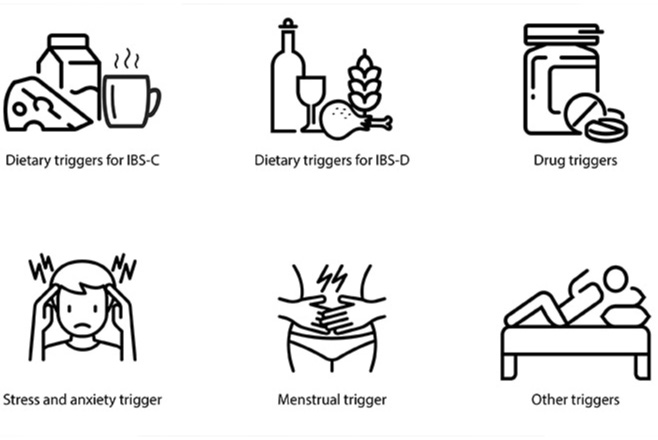Digestive Disorders
Bowels of irritation
WRITTEN BY
Professor Dr Raja Affendi Raja Ali
Consultant Physician and Gastroenterologist at Pusat Perubatan Universiti Kebangssaan Malaysia (PPUKM / Deputy Chairman of Digestive Health Malaysia (DHM)
10 JULY 2019
Adulting today may be getting you down in more ways than you are aware of. Is IBS one of them?
HAVE you ever noticed that life these days is super stressful? You spend long hours slogging at work, eat takeout food more often than not, you never seem to get enough sleep and you’re spending more and more time staring at some sort of device or other. Gone are the days of being carefree and climbing trees and coming home to a hearty home-cooked meal packed with fresh, nutritious ingredients.
With so many stressors in your life, you may simply brush off symptoms like chronic abdominal discomfort or pain, bloating, constipation or loose stool, attributing it to something you ate or drank last night or the fact that you didn’t get enough proper rest. But if these symptoms keep recurring and you never know the exact cause, you might in fact be suffering from irritable bowel syndrome (IBS).
IBS is common among Malaysians, but not many are aware of this condition, or even that they are suffering from it – most people prefer to remain ignorant or apathetic, content to just put up with the occasional “stomach or tummy ache” and relying on traditional or herbal remedies.
In reality however, it is estimated that between 10-20% of people around the world suffer from IBS. In Malaysia, the data is limited, but a number of surveys have recorded a prevalence that ranges between 10-16%. This means that up to 1 in 6 people in Malaysia may be suffering in silence without realising what is afflicting them.
What is it?
Basically, IBS is a collection of gastrointestinal symptoms that occur without any clear and detectable physical reasons. The main symptoms of IBS are abdominal pain and altered bowel habits, along with bloating, cramping, gas, diarrhoea and constipation.
IBS can be divided into several subtypes: 1) IBS with predominant constipation (IBS-C), 2) IBS with predominant diarrhoea (IBS-D), 3) IBS with mixed bowel habits (IBS-M), and 4) IBS unsubtyped (IBS-U). Different types are described with different combination of symptoms suffered by patients.
Due to its non-specific symptoms, IBS can be misdiagnosed with other conditions. Fever, weight loss, continuous pain or bloody stool are not considered as symptoms of IBS and could point to other problems. Thus, a proper investigation by a healthcare professional is necessary to confirm IBS.
Knowing what triggers IBS is important in managing the symptoms. The trigger may be different for everyone, so it is good if you can keep track of triggers and learn to avoid them.

- Dietary triggers for IBS-C: refined grains, processed foods, coffee, carbonated drinks, alcohol, high-protein diets, dairy products
- Dietary triggers for IBS-D: too much fibre, chocolate, caffeine, alcohol, fructose, sorbitol, carbonated drinks, large meals, fried and fatty foods, dairy products, wheat
- Drug triggers: antibiotics, some antidepressants, medicine containing sorbitol
- Stress and anxiety trigger
- Menstrual trigger
- Other triggers: Some particular food for certain IBS patients, eating too quickly or while distracted, lack of exercise, lack of sleep, etc.
Effect on your life
IBS may not be life-threatening, but it can definitely affect your quality of life. The symptoms may arise unexpectedly and can interrupt daily routines, including work and travel. It can also affect the overall quality of life.
The first step in dealing with IBS is to recognise and diagnose that you have IBS. Knowing what your problem is will help you find ways to resolve it, or at least to manage it. If you suspect that you have IBS, it is urgent for you to seek help and advice from a healthcare professional.
Did You Know?
Today, researchers have come up with various strategies to deal with IBS. These include special diets, medicines, therapy, and other alternatives. One promising avenue is probiotics. A study performed by the Gut Research Group at the Pusat Perubatan Universiti Kebangsaan Malaysia in 2018 found that daily consumption of cultured milk drinks, containing live probiotic cultures Lactobacillus acidophilus and Lactobacillus paracasei, by IBS-C patients resulted in improvements of constipation symptoms, intestinal transit time and faecal pH. - VITAGEN HEALTHY DIGESTION PROGRAMME
AN INITIATIVE BY

The author/expert is not associated with, and does not endorse any brand or product. This article is the courtesy of VITAGEN HEALTHY DIGESTION PROGRAMME.







